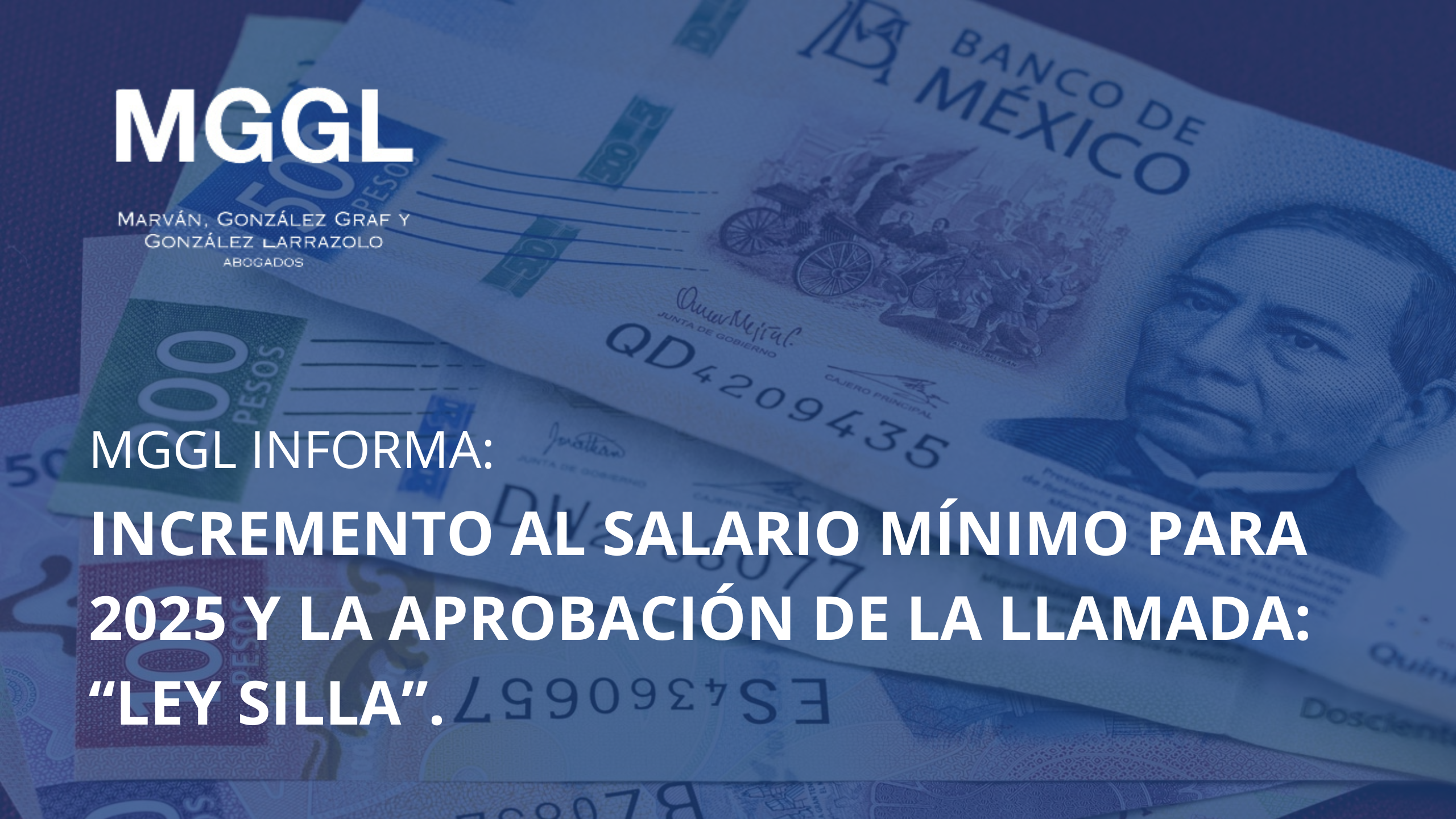Minimum Wage. On December 4th, it was announced that the minimum wage increase for 2025 will be 12%. Starting January 1st, 2025, the general minimum wage will be $278.80 MXN per day, and $419.88 MXN per day for the Free Zone of the Northern Border ("ZLFN").
The increase in the general minimum wage was calculated by applying a 6% increase to the amount resulting from the sum of the current 2024 minimum wage plus the "Independent Recovery Amount" ("MIR"). The MIR is a fixed amount established as part of the government’s policy to recover the purchasing power of the minimum wage and should not be used as a reference for setting other wages, such as contractual ones.
The 12% increase also applies to professional minimum wages, which cover a total of 61 professions, trades, and occupations.
En los últimos años, el salario mínimo se ha incrementado en mayor medida en comparación con años anteriores, por lo que este último incremento fue reservado:

These increases are intended to make progress toward the goal that by 2030, every worker will be able to afford 2.5 times the cost of the basic basket of goods.
On the international level, since 2023, Mexico has surpassed the average of general minimum wages in Latin America, and the increase for 2025 could be the largest in the region for that year. This decision is important for maintaining the positioning and competitiveness of wages in the country.

Chair Law. On December 4th, the Mexican Senate approved a legislative initiative with a decree project to amend various articles of the Federal Labor Law regarding the right to rest during the workday (known as the “Chair Law”). This marks the end of the legislative process in the Congress of the Union, with publication in the Official Journal of the Federation ("DOF") still pending.
Con esta reforma se reconoce y protege el derecho de los trabajadores al descanso en un asiento con respaldo durante la jornada laboral, reafirmando la prohibición a los patrones de obligar a sus trabajadores a permanecer de pie durante su jornada de trabajo y prohibir que tomen asiento periódico durante la jornada, generando la obligación a los patrones de proveer número suficiente de asientos o sillas con respaldo para todos sus empleados trabajadores en sectores de servicios, comercio y centros de trabajo análogos para la ejecución de sus funciones o para el descanso periódico durante la jornada de trabajo.
In cases where it is not possible to provide seating due to the nature of the work, designated areas should be set up for this purpose, with rest periods for their use.
The new provisions are expected to become mandatory by mid-2025. Before this deadline, the Ministry of Labor must issue the corresponding Norms (NOMs) to define and specify the conditions under which chairs and seats must be provided, as well as the specific obligations arising from this regulation.
